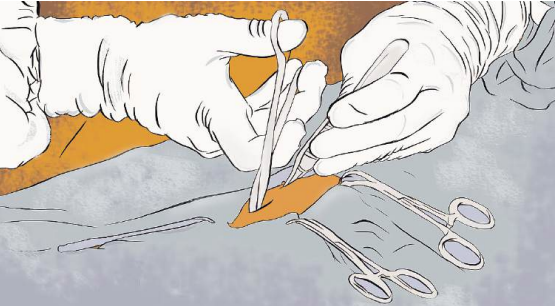

In an episode of Blue Bloods, a popular TV series, police commissioner Frank Reagan—a character known for integrity and sound judgment—makes a devastating mistake.
When an old friend pulls a gun on an unarmed man, Reagan, driven by personal loyalty, decides to let him off with a warning.
But the consequences of Reagan’s leniency soon unfold: the friend repeats his actions, this time facing an armed individual who retaliates, leaving him fatally wounded.
Reagan’s decision not to hold his friend accountable led to a ripple effect of tragedy, reminding us that when leaders fail to address serious risks, the fallout can be catastrophic.
In Kenya, we’re experiencing a similar ripple effect—not with guns, but with lives lost due to a lack of surgical access.
This gap in care, particularly in rural areas, is an urgent crisis affecting thousands.
The choice not to prioritise surgical access, despite its critical role in health outcomes, mirrors Reagan’s oversight, where the consequence of inaction was inevitable.
Just as Reagan’s friend repeatedly disregarded consequences, Kenya’s healthcare system has persistently neglected the need for surgery as a basic component of care, resulting in a continuing cycle of preventable suffering and death.
In Kenya, surgical care is essential but widely inaccessible.
Trauma services, emergency C-sections, cancer surgeries and other urgent procedures go unmet for vast portions of the population.
A staggering 30 per cent of deaths worldwide could be avoided with timely surgical intervention, yet the resources needed to make this a reality remain scarce.
Surgical care is not just a specialty; it’s a necessity. But for millions, access is out of reach.
This crisis in surgical care isn’t due to a lack of awareness.
Much like Reagan’s oversight, the gaps in Kenya’s surgical access are well-documented. However, the persistent neglect—often overshadowed by other healthcare priorities—reflects a systemic choice to sideline surgery in favour of other initiatives.
This neglect is costing lives, impacting not only those in need of surgical care but their families, communities and the nation’s future.
The factors behind Kenya’s surgical access crisis are complex.
The persistent barriers include high poverty rates, which limit patients’ ability to afford surgery, an underfunded healthcare infrastructure and a shortage of trained healthcare professionals.
This shortage is especially acute in rural areas, where specialist surgical services are almost non-existent.
These issues are compounded by inadequate funding for healthcare and an underdeveloped referral system that leaves patients waiting too long to access specialised care.
Another root cause is the “brain drain” effect, where the limited number of trained surgeons and healthcare workers are drawn to better opportunities abroad or to private hospitals, leaving public facilities understaffed.
These systemic issues create a barrier to essential surgical services, leaving Kenya’s population vulnerable to conditions that could otherwise be prevented or treated.
Addressing the surgical access crisis requires both immediate interventions and long-term systemic reforms.
Here are some specific policy recommendations to support this cause: Incentivise training and retention of surgical professionals: the government could introduce subsidies, loan forgiveness programmes and other incentives for medical students pursuing surgical specialties.
Rural placements could be incentivised with competitive salaries, bonuses and career development opportunities.
Streamline the procurement of surgical equipment: A streamlined, transparent procurement process could help equip public hospitals with the surgical tools they need.
Partnerships with global organisations could also allow for bulk purchasing of essential equipment at lower costs.
Strengthen the referral system: An efficient, well coordinated referral system is vital for connecting patients with the surgical care they need.
A policy that subsidises transport and accommodation for rural patients travelling to surgical facilities could reduce barriers for low-income families.
By prioritising surgical access, we’re not just reducing suffering; we’re investing in our future, building a nation where health isn’t a privilege but a shared right.
NICHOLAS OKUMU is an Orthopaedic surgeon and a 2024 Global Surgery Advocacy Fellow


 © The Star 2024. All rights reserved
© The Star 2024. All rights reserved